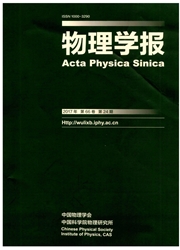

 中文摘要:
中文摘要:
We conduct a theoretical study of the damage susceptibility trend of a typical bipolar transistor induced by a high-power microwave (HPM) as a function of frequency. The dependences of the burnout time and the damage power on the signal frequency are obtained. Studies of the internal damage process and the mechanism of the device are carried out from the variation analysis of the distribution of the electric field, current density, and temperature. The investigation shows that the burnout time linearly depends on the signal frequency. The current density and the electric field at the damage position decrease with increasing frequency. Meanwhile, the temperature elevation occurs in the area between the p-n junction and the n-n + interface due to the increase of the electric field. Adopting the data analysis software, the relationship between the damage power and frequency is obtained. Moreover, the thickness of the substrate has a significant effect on the burnout time.
 英文摘要:
英文摘要:
We conduct a theoretical study of the damage susceptibility trend of a typical bipolar transistor induced by a high-power microwave (HPM) as a function of frequency. The dependences of the burnout time and the damage power on the signal frequency are obtained. Studies of the internal damage process and the mechanism of the device are carried out from the variation analysis of the distribution of the electric field, current density, and temperature. The investigation shows that the burnout time linearly depends on the signal frequency. The current density and the electric field at the damage position decrease with increasing frequency. Meanwhile, the temperature elevation occurs in the area between the p-n junction and the n n+ interface due to the increase of the electric field. Adopting the data analysis software, the relationship between the damage power and frequency is obtained. Moreover, the thickness of the substrate has a significant effect on the burnout time.
 同期刊论文项目
同期刊论文项目
 同项目期刊论文
同项目期刊论文
 Influence of the external component on the damage of the bipolar transistor induced by the electroma
Influence of the external component on the damage of the bipolar transistor induced by the electroma 期刊信息
期刊信息
